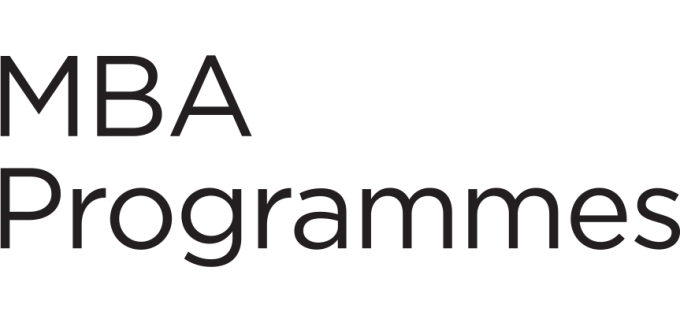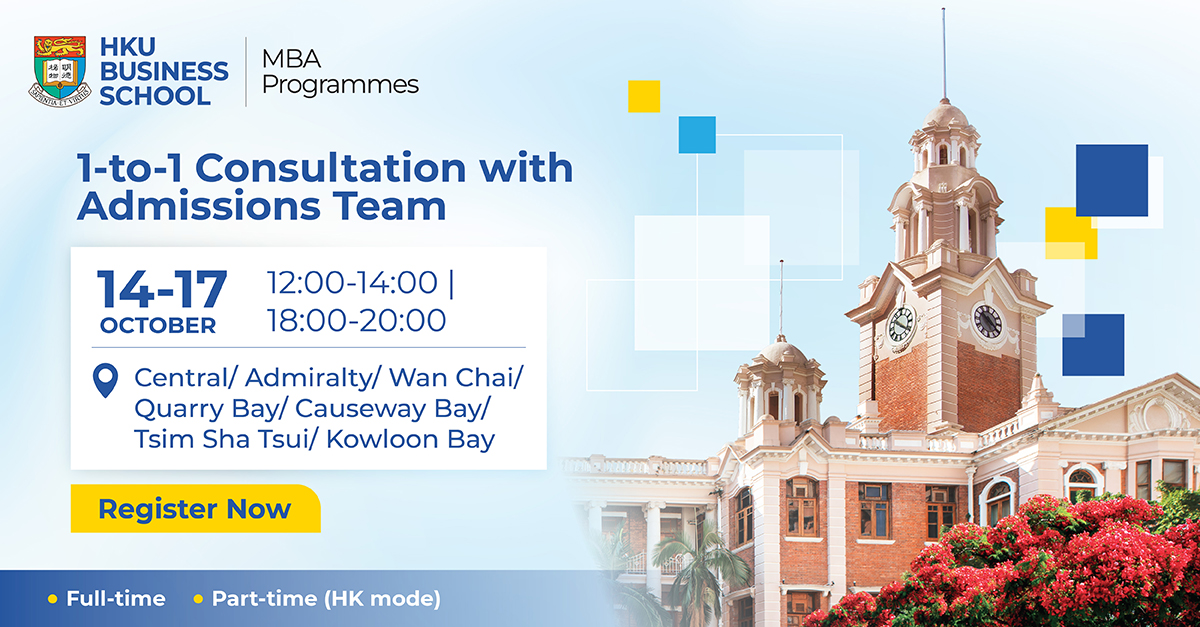Media Interview
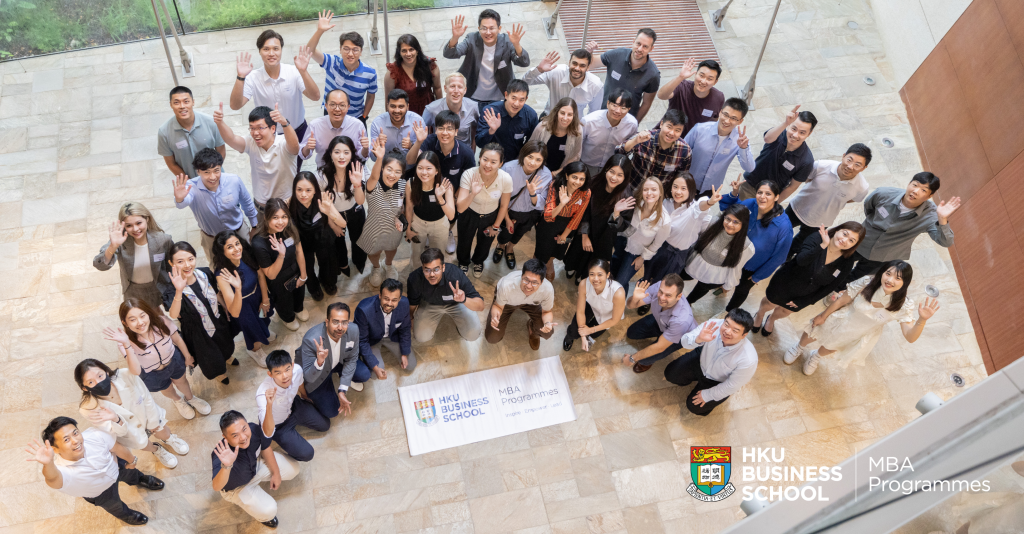
This renowned MBA program in Asia draws in students from across the globe. Find out why members of the incoming class of 2024 took the decision to enroll this year
When it comes to the MBA classroom, a cohort of individuals from different regions, industries, and generations breathes life into the study experience.
A diverse class means students can learn from each other during discussions and benefit from their classmates’ cultural and professional experiences when collaborating in group projects.
Business schools therefore focus on curating diverse cohorts during admissions. For example, at HKU Business School, the home of one of Asia’s top-ranked MBA programs, more than 95% of Full-time MBA students preparing to join the program this year hail from international backgrounds.
Students from regions ranging from Bulgaria to South Korea have enrolled in the incoming class seeking new cultural experiences and diverse career opportunities. BusinessBecause caught up with some of the class to find out what drew them into applying.
HKU Full-time MBA Class Profile: A Brief Overview
HKU offers three MBA programs, including part-time and full-time options, which combine to draw in more than 400 students this year.
Among those entering the Full-time MBA, the incoming class comprises just 46 students. This comparatively small class size is part of the school’s effort to curate an intimate learning environment.
Those who come from international backgrounds bring with them cultural experiences spanning four continents. In total, 14 regions are represented within the classroom.
Regions Represented In The Student & Alumni Community

Red: Yes | Blue: No
The class is similarly diverse when it comes to students’ prior work experience. Professionals entering the class have worked in various capacities across financial services, chemical, technology, real estate, trading, consulting, retail, aviation, education, and advertising.
So, what is it about the HKU MBA that draws in such a diverse cohort?
Why Enroll In The HKU MBA?
1. Opportunities to learn from experts
The network students develop while studying an MBA typically consists of a mixture of alumni, industry leaders, corporate recruiters, and expert professors.
Those professors often have experience both in producing groundbreaking research as well as working in industry. At HKU, faculty members have worked in areas such as venture capital, green finance, and artificial intelligence.
For Bulgarian-born Angel Todorov, the impact that exposure to this level of expertise could have on his career was a key reason behind enrolling in the HKU MBA. Prior to applying, Angel completed a Master’s degree in China before embarking on a career in international trade, eventually becoming CEO of his own firm.
“Building a vision and realizing success can only be taught by people who have done it. The HKU MBA faculty will guide me toward abstract thinking and help me improve my reasoning ability to solve challenging problems,” he says.
2. A diverse community network
As well as connecting with experts, building bonds with your peers inside the MBA classroom can also be influential for your growth. Fellow classmates can provide you with strong friendships and a support network, as well as connections that can lead to opportunities as you progress in your career.

When searching for programs to study, Indonesian-native Amelia Amin was attracted to the HKU MBA’s diverse community. She applied having spent years in a leading role within her family’s real estate business.
“HKU’s diverse community will offer valuable perspectives and learning opportunities from like-minded cohorts. I’m excited to create impactful connections and embark on a transformative journey with HKU,” Amelia says.
3. The chance to understand modern business trends
Inside the HKU MBA classroom, teaching focuses on fundamental business theories while also tying in cutting-edge concepts such as blockchain, artificial intelligence, and impact investing.
Sustainability, one of the fundamental drivers impacting the global landscape today, is also a key focus within both core and elective modules. Relevant courses range from ‘Renewable Energy Finance’ to ‘Effective ESG – Assessing, Advising and Leading’.
Arpit Srivastava chose to enroll in the HKU MBA to increase his ability to make an impact in his career. Originally from India, he spent the two-years before enrolling in the program working for Kapoor Diesels, one of the largest logistics firms in Delhi, in an assistant manager role.
“The program’s emphasis on responsible leadership and social impact aligns with my long-term aspiration to start ventures focusing on sustainable business practices,” he says.
4. A curriculum rooted in Asian business culture
The complex concepts and theories taught within the HKU MBA are delivered using examples of case studies rooted in Asia Pacific business culture. Students learn about the economies, business practices, and key technologies in use within the region.
Yejin Kim spent 10 years working with multinationals in her home country of South Korea before enrolling in the HKU MBA class of 2025. She felt this focus on business within the Asia Pacific, particularly China, would enhance her professional opportunities.
“During my university years, I have been interested in not only the Chinese language but also the culture and economics. I believe understanding of the Chinese market, one of the largest and most essential economic areas in the world, will help my development” she says.
5. A unique international business environment
Alongside the program’s focus on the business practices of the East, various curricular elements mean HKU MBA students also gain the chance to delve into learning about business practices in a more global context.
Modules such as ‘Macroeconomics: Global Perspective’ offer a wider lens on fundamental business issues. Students can also undertake study tracks abroad with the UK’s London Business School and Columbia Business School in the US during the one-year intensive program.
This dual focus proved important for Anu Hodge when choosing where to study her MBA. A native of Australia with more than 16 years of experience in technology and retail, she felt the program would offer a different challenge as she undertook new experiences.
“The HKU MBA has a renowned global ranking coupled with an overseas study track with global university partnerships, which is really appealing for me to enter post-graduate education at this stage of my career,” she says.
So, as these incoming students currently scattered across the globe prepare to leave their homes and begin their MBA journeys, it’s clear that within the intimate HKU MBA classroom they’ll spend significant time learning from each other as well as the program itself.
This article originally appeared in BusinessBecause.


